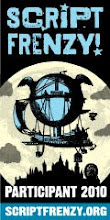Stu Silverstein located, compiled, edited, and titled the untitled, "uncollected" poems of DorothyParker . He shopped them around and got an offer of $2,000 from Penguin publishing, which he turned down. Instead, he published the poems through Scribner under the title of NOT MUCH FUN.

And then along came Penguin and published Dorothy Parker's complete poems, including those previously published as "collected" and the "uncollected", which they cut and pasted from Silverstein's book, editorial errors, new titles and all, without attribution or payment.

Silverstein sued. He won some early rounds in the lawsuit, including a summary judgment motion (where the court finds that there are no material issues of fact and that the law supports the claim). But on appeal, the Second Circuit Court of Appeals reversed the summary judgment in favor of Silverstein. It relied on a U.S. Supreme Court case: Feist Publications, Inc. vs. Rural Telephone Service Co., 499 U.S. 340 (1991).
This was a case about a telephone directory--where one regional publisher used a local telephone company's directory to provide the information it needed for a section of its regional directory, without license. The Supreme Court said that was fair, and not prohibited by copyright laws. The basic analysis relies on the difference between fact and original creation. Facts are not subject to copyright, which protects only original creations.
The Court said that a compilation of facts has some protection if the compilation shows selection, original organization, and other editorial input. But the protection is limited, as explained by the Supreme Court.
"This inevitably means that the copyright in a factual compilation is thin.
Notwithstanding a valid copyright, a subsequent compiler remains free to use the
facts contained in another's publication to aid in preparing a competing work,
so long as the competing work does not feature the same selection and
arrangement. As one commentator explains it: "[N]o matter how much original
authorship the work displays, the facts and ideas it exposes are free for the
taking. . . . [T]he very same facts and ideas may be divorced from the context
imposed by the author, and restated or reshuffled by second comers, even if the
author was the first to discover the facts or to propose the ideas." Ginsburg
1868.
"It may seem unfair that much of the fruit of the compiler's labor
may be used by others without compensation. As Justice Brennan has correctly
observed, however, this is not "some unforeseen byproduct of a statutory
scheme." Harper & Row, 471 U.S.,at 589 (dissenting opinion). It is, rather,
"the essence of copyright," ibid. and a constitutional requirement. The primary
objective of copyright is not to reward the labor of authors, but "[t]o promote
the Progress of Science and useful Arts." Art. I, 8, cl. 8. Accord, Twentieth
Century Music Corp. v. Aiken, 422 U.S. 151, 156 (1975). To this end, copyright
assures authors the right to their original [begin page 350] expression, but
encourages others to build freely upon the ideas and information conveyed by a
work. Harper & Row, supra, at 556-557. This principle, known as the
idea/expression or fact/expression dichotomy, applies to all works of
authorship. As applied to a factual compilation, assuming the absence of
original written expression, only the compiler's selection and arrangement may
be protected; the raw facts may be copied at will. This result is neither unfair
nor unfortunate. It is the means by which copyright advances the progress of
science and art."
So it may be that Penguin has advanced the arts by cutting and pasting from Silverstein's work. The case isn't yet over. With the summary judgment vacated on appeal, the lawsuit is re-instated in the trial court. And Silverstein will get to argue his claims (although the copyright claim seems dead in the water.) It appears that trial is set for July 17, 2007 in the Southern District of New York. I'd like to watch!
I understand the limits of the copyright law, as explained in the telephone directory case. And I understand the purpose of advancing the arts. And of course, Silverstein can't claim Ms. Parker's copyright himself.
But it still seems wrong on a fundamental level that Silverstein should do all the work, scouring old newspapers to find the poems that had not been published in anthology form before, editing them, giving them titles, and then have a publisher not pay for his work. And admit they cut and pasted from his book.
Imagine that.













No comments:
Post a Comment